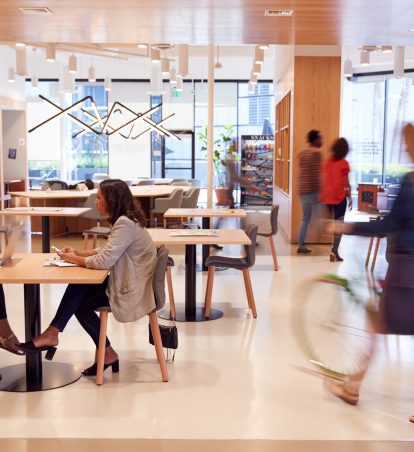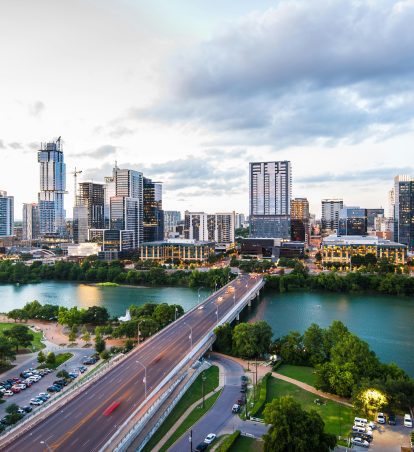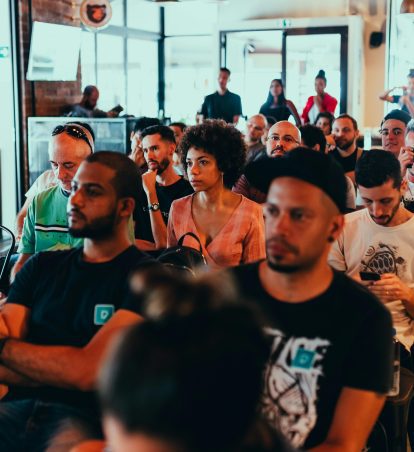Exploring the pull of Saudi Arabia as a prominent business travel hub: 5 minutes with Sofia Oragano
The Kingdom of Saudi Arabia is undergoing a mega-shift. As the government of Saudi Arabia invests heavily into the country’s economic future, Saudi Arabia has emerged as a dynamic hub driven by ambitious economic reform, visionary commercial projects and a creative tourism campaign.
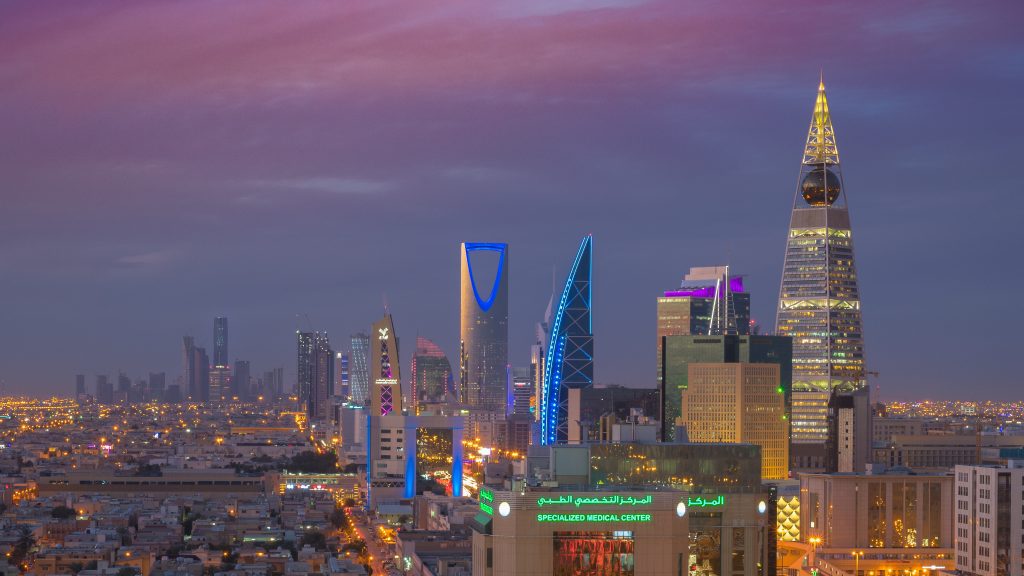
With its economy booming and key industries flourishing, Saudi Arabia’s growth has acted as a catalyst in the expansion of its business travel industry as corporates race to establish a foothold in the city. This surge in travel to Saudi Arabia is further propelled by the country’s strategic initiatives to ease visa regulations, improve international connectivity and host international events, while revolutionary projects like Neom and The Line, continue to position Saudi Arabia as the Kingdom of the future.
Fascinated by this country’s thriving future, we caught up with our Senior Director, International Sales, Sofia Oragano to dive deeper into the latest of business travel and serviced accommodations across Saudi Arabia. Here’s what we learned:
Q: Business travel to Saudi Arabia is thriving. What’s driving this?
Sofia: It’s really quite remarkable what’s happening in Saudi Arabia. The country is currently implementing an ambitious transformation as part of Vision 2030, which is aimed at reducing the country’s dependence on oil and instead focuses on diversifying its economy across key industries. This is bringing with it a major influx of companies and travellers seeking to reap the benefits of what this powerhouse has to offer. It’s quite fascinating to watch.
Key sectors like tourism, entertainment, real estate, education, healthcare and renewable energy have seen a major boost in recent years and are expected to continue to grow. But this is just a drop in the ocean of what’s going on in Saudi Arabia—it’s as if the country is one or two steps ahead of other global players as billions are being poured into some of the world’s most innovative projects like NEOM and ALNAMA Smart City in Riyadh (the world’s first zero carbon city). To put things into perspective, Saudi Arabia’s GDP is expected to grow by an impressive 4.7% in 2025.

This, combined with economic, international and societal reforms, is positioning travel to Saudi Arabia as even more attractive for companies seeking to set up local subsidiaries, while also challenging the narrative around what was once considered an insular and outdated society. Things are changing in Saudi Arabia and they’re changing fast—it’s truly the city of the future and I only expect business travel to continue to flourish.
Q: Which cities are seeing the biggest influx and why?
Sofia: Riyadh and Jeddah are seeing the biggest influx of business travellers at the moment. There are a number of contributing factors to this but one of the most prominent is the cities’ strategic importance in the country’s economic diversification plan. Travellers are moving here by the hundreds of thousands across industries like education, construction, renewable energy, finance and so much more as Saudi Arabia continues to expand its horizons and attract talent from across the country and around the world. Riyadh’s population, for example, Is predicted to double to a jaw-dropping 17 million by 2030.
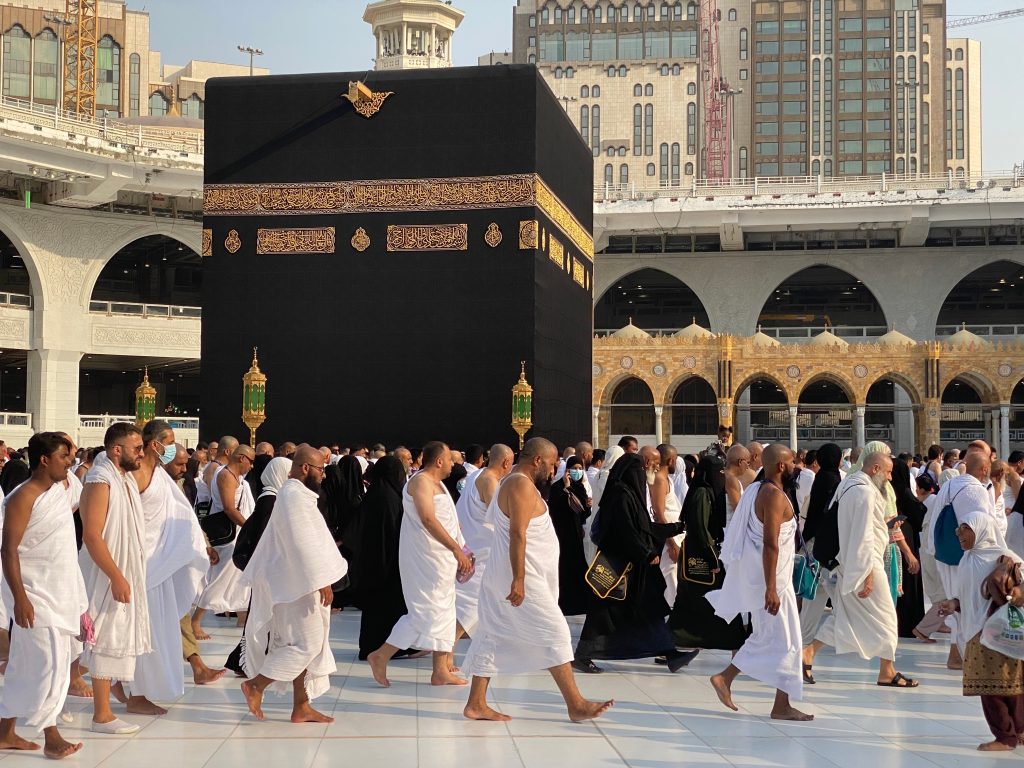
As for today, Riyadh is already an established major financial hub within the Middle East, while Jeddah’s proximity to the King Abdullah Economic City means the western city will only continue to grow as a major economic zone. Jeddah’s strategic location is also often referred to as the gateway to the Kingdom due to its position as the main port city on the Red Sea. It’s also just two hours by train to Medina and the holy city of Mecca. This adds another layer to increased travel to Saudi Arabia as companies seek to capitalise on an increase in religious tourism and travellers seek to explore and experience more while they travel for business.
Saudi Arabia is expanding at such a fast rate I think if you were to ask me this same question in five years’ time, my answer might include secondary cities like NEOM, Dammam and Jubail. It’s going to be at an exponential rate like we’ve never seen before.
Q: If business travel to Saudi Arabia is accelerating, what does this mean for the serviced accommodation industry?
Sofia: This is where it gets really exciting because if there’s any country that has the capability to redefine serviced accommodations, it’s Saudi Arabia.
The country is in a unique position whereby the market is not yet saturated. While there are numerous local and international providers in Saudi Arabia, there are still heaps of opportunity for new players to enter and redefine what serviced accommodation can look like in a country like this. I think this has the potential to take travel programmes to a new level considering Saudi Arabia’s investment into innovative technologies, zero-carbon cities and smart infrastructure.
Serviced apartments in Riyadh typically range from standard to luxury apartments, with accommodation in Jeddah not far behind. Most of the choice of serviced apartments comes from Riyadh. The number of branded residences remains low in comparison to the rest of the world meaning availability can be volatile and prices can rise quickly, especially in secondary cities where supply is low. We can expect that as investment into real estate rises, especially for serviced apartments in Riyadh and Jeddah, supply and demand will eventually even out and stabilise the market.
Q: What are the top 3 things travel and mobility managers should consider when choosing accommodation in Saudi Arabia?
Sofia: this is a good question because we still have a lot to learn as an industry about accommodation Saudi Arabia. To guarantee a successful programme leveraging serviced apartments in Riyadh or Jeddah for example, I’d recommend a consideration of the following:
Plan ahead
The key to success in Saudi Arabia is to be proactive, plan ahead and communicate your needs to your serviced apartment provider. Working with an agency who can collaborate with local suppliers to anticipate supply and demand fluctuations on your behalf will really help in containing costs associated with demand hikes. Choice can sometimes be limited, especially during cultural events like Ramadan, so being prepared is really going to help you manage cost and overall traveller wellbeing.
Location will be key
Given the traffic congestion in major cities, the success of adopting serviced apartments in Jeddah or Riyadh will come down to proximity to local offices. You’ll need to consider how accessible the accommodation in Saudi Arabia is to business centres, offices and airports as this will be key to saving time, enhancing productivity and reducing overall stress for travellers. Saudi Arabia does not yet have an extensive public transport system and so travellers will likely use taxis as their main mode of transport. Eventually this can get costly for extended business travel, not to mention unsustainable for those travelling on carbon budgets.
Educate your travellers
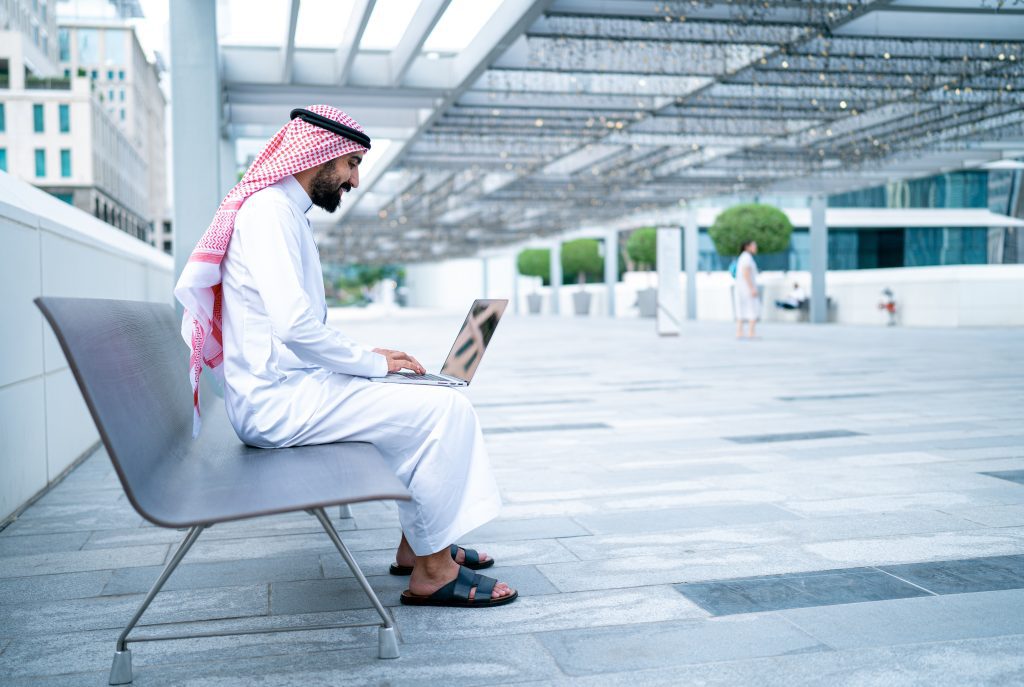
Travel to Saudi Arabia is a unique experience with its diverse cultural and social norms, particularly regarding gender segregation, dress codes and public behaviour. Many serviced apartments in Riyadh for example have public, communal areas similar to that of a hotel, it is paramount travellers are aligned with these norms. Not only will this help ensure travellers are in compliance with local laws, but it can help reduce culture shock and improve wellbeing amongst travellers from the get-go.
Q: What should we anticipate in terms of the availability for serviced apartments in Saudi Arabia for the rest of 2024?
Sofia: Demand for serviced apartments in Riyadh and Jeddah is increasing. While we have seen slight price increases as a result, this is balancing out as international and local brands open new inventory across the country. For the remainder of the year, key events like the Saudi Games and Riyadh Season 2024 will impact on availability and may push nightly rates up.

Looking further ahead, investment into new hotels and extended-stay accommodation in Saudi Arabia will explode, with an anticipated 315,000 new hotel rooms due to be added by 2030 taking new stock to nearly 450,000. To put this explosive investment into perspective, Dubai—Saudi Arabia’s middle eastern “city of the future” counterpart—currently has 200,000 completed hotel rooms. I anticipate the supply of various serviced accommodation product types such as aparthotels, co-living and so on will follow suit as travellers and buyers realise the benefits of choosing serviced accommodation over hotels.
How Synergy Can Help
At Synergy, we specialise in managing the end-to-end management of serviced accommodation programmes, wherever our clients need us to be across Saudi Arabia, and for however long.
Our goal is simple: to make it easy for you to achieve your business travel and mobility objectives across Saudi Arabia without any compromise on guest experience. More specifically, Synergy can provide:
- Consultative, end-to-end programme management which targets your specific corporate travel and overall organisational objectives in Saudi Arabia and beyond
- Access to a specialist team of reservations, guest services, finance, sales and supply chain management experts to support you and your business travellers from start to finish
- Access to an extensive network of fully vetted apartments across Saudi Arabia
- Access to high touch service teams who will go above and beyond to deliver your objectives
- Innovative and flexible accommodation management solutions to meet the ever-evolving requirements of the modern-day business traveller
Ready to learn more about how Synergy can support you in Saudi Arabia? Tell us what you need and our team will be happy to support you.
